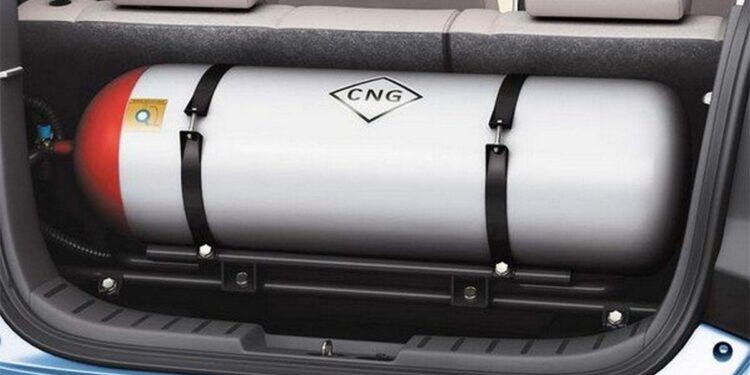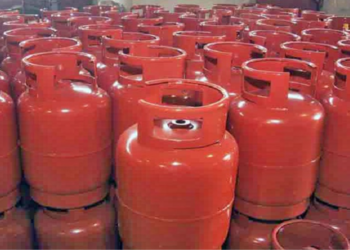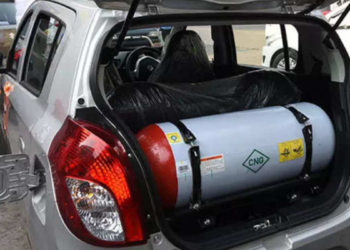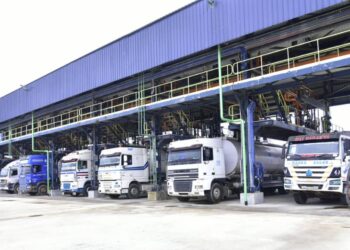Article summary
- IPMAN members have started taking action to dispense compressed natural gas alongside fuel in some filling stations. This will serve gas-run vehicles in the country.
- If some vehicles are running on natural gas in the country, it will reduce pressure on the demand for fuel and crash fuel prices.
- Nigeria already has the NGEP policy which focuses on transforming Nigeria into a natural gas-dependent economy.
The Independent Petroleum Marketers Association of Nigeria (IPMAN) has said that it is prepared to dispense compressed natural gas (CNG) at its filling stations across the country.
This is according to the IPMAN president, Chinedu Okoronkwo. Punch reports that the IPMAN president said some IPMAN members are already taking action to ensure CNG is dispensed alongside fuel at filling stations.
Okoronkwo said:
- “Some of my members have started signing up to dispense gas at their stations, as well as the collocation of gas in their outlets. One of the major independent marketers has given over 500 of his trailers for conversion to transport gas to filling stations.
- “There are some new tankers too, over 300 of them have also indicated interest in having CNG trucks. These trucks are to serve filling stations that would be dispensing gas to vehicles.
- “What we will do is collocate the gas dispensing plants in a plug-and-play model with existing filling stations. That is the beauty of it and that is why IPMAN is very keen on this project because there is no local government or ward in Nigeria today that you won’t see my members.
- “We control over 80% of the downstream oil sector. So, it is an advantage for us. For if you are to build new gas or CNG stations, it will take a huge cost. But this collocation model has helped to reduce the exposure in terms of building new stations.”
Backstory
In April 2023, IPMAN wrote to the Finance Ministry under the then administration of President Buhari requesting that the Central Bank of Nigeria (CBN) be mandated to release the N250 billion intervention fund for the implementation of the National Gas Expansion Program (NGEP).
IPMAN asked for the fund, so it could be used to provide access to the Gas Expansion Fund for vehicles, keke, and truck owners to access loans to finance the acquisition of natural gas conversion kits. At the time, IPMAN said that it had partnered with Gas Analytics & Solutions Limited, to co-locate natural gas dispensers on their network of over 30,000 filling stations in Nigeria.
According to IPMAN, the collaboration presents the most economical and expedient platform to deploy the necessary infrastructure to support a fast national roll-out of CNG (Compressed Natural Gas) for vehicles.
In 2020, the Buhari administration established the NGEP to enable the transformation of Nigeria into a natural gas economy centered on gas for clean cooking, industrial activities, captive power, and powering automobiles.
























If IPMAN truly believes in the potential of CNG technology, despite its significant drawbacks for consumers as a vehicle fuel and its diminishing relevance with the global growth of EV manufacturing and distribution, they should take the initiative to invest their own funds into building the necessary infrastructure for CNG distribution and storage. Instead of approaching the Federal Government to request funds and attempting to recreate fuel subsidies through alternative methods, they should take ownership of their convictions and invest accordingly.
By law, provision has been made for an intervention fund of 250bn . The multiplier effect on successful implementation of NEGP on the economy far exceeds the investment by government. Remember that Nigeria is actually a gas and not a petrol country .i.e. we have more gas than petrol.
There are massive savings and advantages to be had if IPMAN can facilitate the supply chain of CNG to end users such as hotels, factories, offices, banks, and also residential complexes. If this is done then Nigeria can start to use Gas for their cooling and air conditioning, just as they have done in Japan for the last 40 years.
This will be great in managing the national grid and not necessarily embark on huge investment to improve the existing national grid. And as a known fact, the rate of development in Nigeria can not be overemphasized and it could be a disadvantage later So if alternatively, cooling systems are powered by natural gas or propane that is available enormously in Nigeria, it would reduce the cost of energy to a bearable level.
This will be great in managing the national grid and not necessarily embark on huge investment to improve the existing national grid. And as a known fact, the rate of development in Nigeria can not be overemphasized and it could be a disadvantage later So if alternatively, cooling systems are powered by natural gas or propane that is available enormously in Nigeria, it would reduce the cost of energy to a bearable level.
I want to become one of your supplier